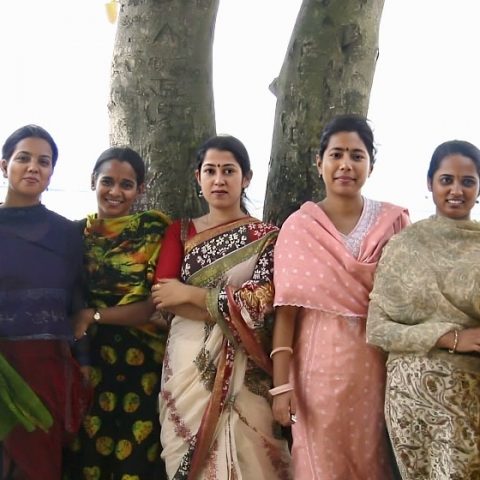Breastfeeding could be key to saving lives of neonates suffering from dehydrating diarrhoea, new icddr,b study suggests.

WHO recommends exclusive breastfeeding for at least the first six months to mitigate malnutrition and other childhood illnesses. Photo: Sumon Yusuf/icddr,b
Breastfeeding is known as a highly effective strategy for the prevention of infectious disease–related morbidity and mortality in infancy as well as in early childhood. The World Health Organization (WHO) and UNICEF recommends early breastfeeding – the initiation of breastfeeding within one hour of birth and exclusive breastfeeding (no other foods or liquids, not even water) for six months. Statistically, breastfed children have at least six times greater chance of surviving in the early months than non-breastfed babies, and those who are exclusively breastfed are 14 times less likely to succumb to malnutrition or childhood illness.
icddr,b has been advocating exclusive breastfeeding of newborns, offering extensive counselling to the mothers in the breastfeeding counselling room in the Dhaka Hospital. It is the only facility of this kind in the city, providing re-lactation therapy for mothers through one-on-one sessions as well as group counselling. This is especially important as many lactating mothers whose babies are admitted to the hospital with diarrhoeal diseases and other co-morbidities like malnutrition, pneumonia, sepsis, discontinue breastfeeding due to taboo and fear of more infecting the child, and the hospital does its utmost to address and reassure their concerns and encourage mothers to continue breastfeeding.
The lack of breastfeeding in early infancy, especially at their neonatal period, is associated with a number of fatal diseases, including diarrhoea and malnutrition. A recent publication by Shahid et al. in the Dhaka Hospital of icddr,b explored the impact of this gap in breastfeeding among 876 infants hospitalised with diarrhoea. Infants who were non-breastfed or had cessation of breastfeeding at their neonatal age, constituted as cases, and those who continued breastfeeding since birth or for at least six months after birth, constituted as controls.
The findings were quite noteworthy. The cases were more often likely to have illiterate mothers, having complicated and dehydrating diarrhoea, severe wasting, and abnormal mental status compared to the controls. The scientists adjusted potential confounding role of other factors to understand whether the impact of breastfeeding shown in this study was real; it has been found that infants who were non-breastfed or had cessation of breastfeeding at their neonatal age had an independent association with dehydrating diarrhoea.
Many previous studies evaluated the positive impact of maternal education on initiation and duration of breastfeeding, indirectly supporting the association between lack of maternal education and non-breastfeeding in the neonatal period. Moreover, other studies observed the association between lack of breastfeeding tendency and poor conception regarding breastfeeding among illiterate mothers.
Non breastfed infants usually suffer from rota viral as well as Campylobacter, shigella and vibrio cholerae induced diarrhoea which are the most important etiologies of dehydrating diarrhoea and they are more likely to develop dehydrating diarrhoea than exclusively breastfed infants. Thus, uninterrupted breastfeeding for at least first six months of life is a matter of global importance for attaining adequate immunity against infections including diarrhoea, the second leading cause of childhood mortality globally.

